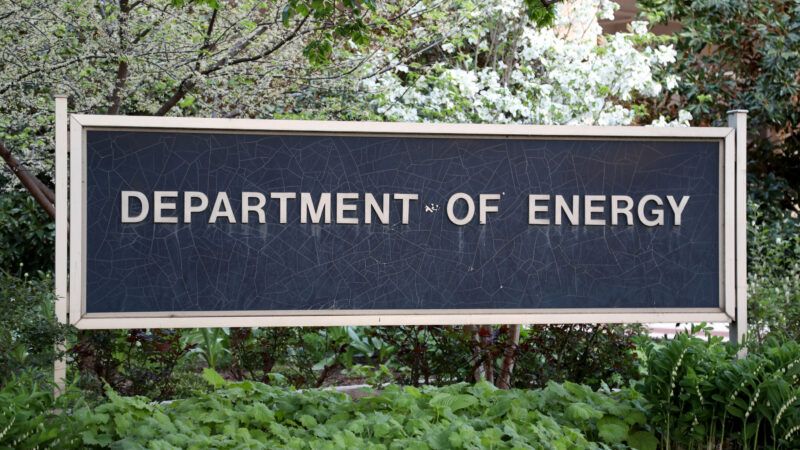The Department of Energy Misspent Nearly $1 Billion in 2024
While $1 billion is a drop in the wasteful spending bucket, fiscal irresponsibility of all sizes must be eradicated.

The Department of Energy is a breeding ground for fraud and abuse—like most government agencies. In its recently released Fiscal Year (FY) 2024 performance report, the agency's Office of Inspector General identified nearly $1 billion of wasteful spending this year.
In 2024, audits from the Inspector General found more than $814 million of questioned and unsupported costs and nearly $123 million in funding that could be better used at the Department of Energy. About $25 million went to restitution, court cases, and penalties, or was returned to the agency.
One of the most egregious instances of waste occurred at Argonne National Laboratory. An audit conducted this year of FY 2019 spending at the institution found that UChicago Argonne, LLC (the third party that manages the laboratory) used improper accounting practices and insufficiently audited subcontractor costs. As a result, the Inspector General has identified $232,495,716 in questionable spending that needs to be further reviewed.
The National Nuclear Security Administration was also audited this year for its contract with NORESCO (an energy service provider) to improve energy and water efficiency at one of its plants in Texas, which it entered into in 2005. Under the terms of the agreement, NORESCO guaranteed the agency would see lower energy costs. Contractual changes reduced the scope of the project, which the federal government missed. As a result, it paid over $6 million from 2018 to 2021 for energy savings that were never realized. The contract with NORESCO has since been terminated, which the Inspector General says will save taxpayers $2.5 million.
Meanwhile, the Department of Energy awarded a $100 million grant to a company that was under investigation for potentially violating U.S. law and exporting semiconductor manufacturing equipment to China, which the awardee did not disclose to the department. The Inspector General notified the agency, which subsequently de-obligated the grant. The investigation is ongoing.
Improper vetting of grant applicants is not uncommon at the department. Indeed, the performance report warns more than $4 billion of funding for federal energy rebates is at risk of fraud due to insufficient oversight and certification in the programs' application process.
This risk is expected to increase in the coming years, according to the Inspector General. A slew of recent legislation, including the Inflation Reduction Act and annual appropriations have supercharged the budget of the Loans Program Office—which supports projects that would likely not be funded by financial institutions—from $17.2 billion in 2021 to more than $400 billion today. With $290 billion and $52 billion set to expire by FY 2026 and FY 2030, respectively, the pressure to get money out of the door before these deadlines leaves this funding especially vulnerable to fraud and abuse.
Rescinding unspent money by repealing the Inflation Reduction Act would help negate future risk. However, doing so would require support from the U.S. House of Representatives and is unlikely to happen since the bill has mostly benefited Republican states and congressional districts.
While $1 billion is merely a drop in the wasteful spending bucket, it is unacceptable nonetheless. As the incoming Trump administration and Congress set their agenda, they should abolish everything and target all reckless government spending, no matter the size.


Show Comments (10)